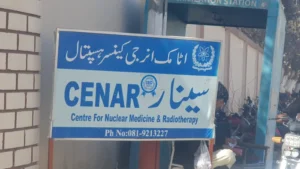Shakoor Khan reports from Islamabad :
There is a need of comprehensive and multi-faceted strategies to improve access to reproductive healthcare services for young mothers and their families. Low social status of women and lack of family planning information and services contribute to the reproductive health challenges for women, especially adolescent mothers, stressed the experts while addressing the members of the Media Coalition, comprised of media personnel from all provinces representing all major media outlets of Pakistan. Media Coalition of Population Council highlights health and family planning issues besides cross sectoral impact of rapid population growth periodically to raise awareness and hold governments accountable for service delivery of family planning and information.
The Population Council, in collaboration with UNFPA, organized the Media Coalition Meeting to mark the forthcoming International Women’s Day in which media personnel were briefed on reproductive health needs of young women in Pakistan. The meeting highlighted youth, in particular, at the risk of experiencing poor reproductive health in Pakistan, which is associated with adverse consequences such as early childbearing and parenthood, pregnancy complications, and maternal death and disability. The meeting also drew a comparison between reproductive health of adolescents of Pakistan and other regional countries. The role of media in highlighting this issue was also be discussed in length during the meeting.
Dr. Ali Mir, Senior Director Programs, Population Council urged stressed on elimination of early marriages by utilizing existing media and communications networks and encouraged journalists to play their active role in this regard. He also said, “Reaching out to young couples with accurate, reliable and credible information on reproductive health, pre-marital counselling on family planning and greater investments in education and employment opportunities for young couples particularly young married women are very much needed.”
Briefing the media, Ikram ul Ahad, Senior Communication Officer at the Population Council presented new estimates produced jointly by the Guttmacher Institute and the Population Council, which reveal critical gaps in reproductive health services for young married women of reproductive age (15–19) in Pakistan. Findings show that simultaneously expanding both modern contraceptive services and maternal care would not only maximize benefits to women but would also be an efficient use of funds. Currently, 397,000 young women (15-19) give birth in Pakistan, and more than half of them make fewer than the recommended four antenatal care visits, and 126,000 do not deliver in a health facility. The most common causes of maternal deaths among young mothers in Pakistan are hypertension, followed by unsafe abortion. Mr. Ahad also presented a comparative data of family planning, health and women empowerment indicators of regional countries which showed Pakistan’s lackluster performance against most of the indicators.
If all needs of contraceptive, maternal, and newborn healthcare, and abortion care for young Pakistani mothers were met, unintended pregnancies would be reduced from 221,000 to 62,000 per year. (a 72% decline); abortions would decrease from 128,000 to 36,000 per year. (72% decline); maternal deaths would be reduced from 1,020 to 250 per year. (76% decline).
Speaking to the media on the reproductive health needs of young women in Pakistan, Dr. Naila Israr, Executive Member SOGP (Rawalpindi Chapter) said “early marriage is the root cause of pregnancy related complications, abortions, newborn health issues, malnutrition, and maternal deaths. Use of modern contraceptives is an effective tool of saving lives as it reduces repeated and ill-spaced pregnancies”. She also highlighted the cost-effectiveness of contraceptives in terms of medical expenses of maternal and newborn care.
Participants of the meeting pledged to use media as an effective tool in promoting family planning in young women as a socially and religiously acceptable practice. They also agreed to play a positive role in increasing access of reproductive health information and services to adolescent couples in Pakistan as media campaigns could build pressure on governments to ensure availability of contraceptive and trained staff at all health outlets. Through their news reports and stories, journalists pledged to highlight the need of legislation on pre-marital counselling on family planning and enhanced role of men in child marriage, girls education and women empowerment.






